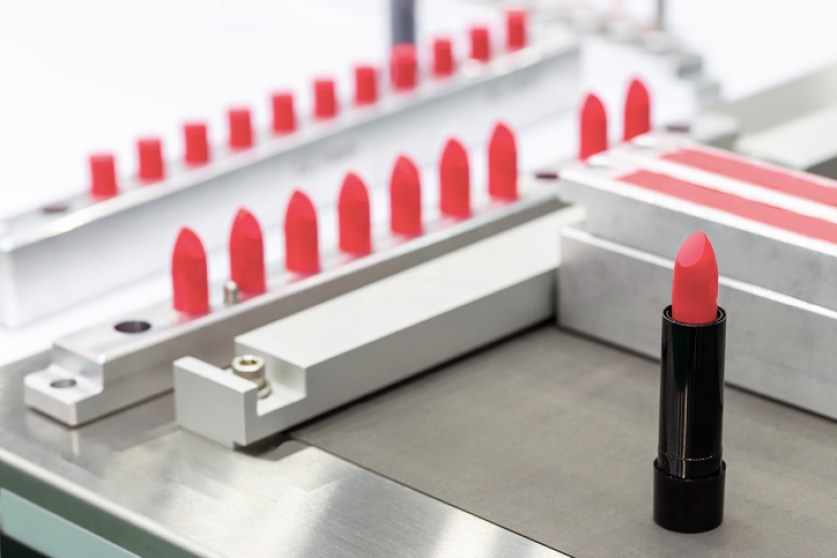In recent years, the cosmetics industry has experienced exponential growth, with new products being introduced almost daily. The average American consumer uses six to 12 cosmetics products daily. This growth has resulted in a need for more comprehensive regulation of cosmetic products to ensure consumer safety. The Modernization of Cosmetics Regulation Act of 2022 (MoCRA) is a new law that aims to modernize and strengthen cosmetic regulations in the United States.

MoCRA was signed into law on January 1, 2022, and replaces the previous Cosmetic Act, which had not been updated since 1938. MoCRA brings significant changes to the cosmetic industry and regulations under MoCRA will impact the entire lifecycle of cosmetics products from manufacturing to marketing.
New MoCRA requirements include:
- FDA registration for cosmetics facilities
- Product listings for each cosmetic product
- Adverse event reporting
- Safety substantiation
- Compliance with Good Manufacturing Practices (GMPs)
- Fragrance allergen labeling
MoCRA also gives the FDA new records access and mandatory recall authority.
Facility Registration and Product Listing
Cosmetic facilities must register with the FDA and renew their registration every two years. The term “facility” means any establishment that either manufactures or process cosmetic products distributed in the United States. Existing facilities have until December 29, 2023 to register. New facilities must be registered within 60 days after they start manufacturing cosmetics.
The FDA may suspend a facility’s registration if the FDA determines that:
- A product manufactured or processed by the facility has a reasonable probability of causing death or serious adverse health consequences to humans;
- The agency has a reasonable belief that other products manufactured or processed by the facility may be similarly affected because of a failure that cannot be isolated or the failure is sufficiently pervasive to raise concerns about other products in the facility.
If a facility’s registration is suspended, it is a prohibited from selling or distributing cosmetics products in the U.S. from the facility.
In addition to the registration requirement, “responsible persons” – defined as manufacturers, distributors, or packers of a cosmetic product whose name appears on the label must list their product with the FDA.
Facilities are encouraged to begin the registration and listing process as soon as possible to account for unanticipated issues or FDA delays as the deadline nears.
Recent news on the Voluntary Cosmetic Regulations Program (VRCP)
The VCRP was a voluntary program that allowed manufacturers, packers, and distributors of cosmetic products to submit product information to the FDA. However, as of March 27, 2023, the FDA has ceased accepting submissions to the VCRP and plans to develop a new program for the submission of facility registrations and product listings mandated by MoCRA.
The FDA’s decision to stop accepting submissions to the VCRP is likely due to the fact that MoCRA will require a much larger volume of submissions than the VCRP has historically received. By creating a new program to handle these submissions, the FDA can better manage the regulatory oversight of cosmetics and ensure greater transparency and safety in the industry.
Safety and Disclosure Requirements
One of the most significant changes that the MoCRA introduces is the requirement for cosmetic manufacturers to submit safety information about their products to the Food and Drug Administration (FDA). This information includes any adverse reactions reported by consumers and information about any potentially harmful ingredients used in the products. The FDA will then use this information to evaluate the safety of the products and take any necessary actions to protect consumers.
The MoCRA also requires cosmetic manufacturers to adhere to good manufacturing practices (GMPs), which are a set of guidelines that ensure the quality and safety of cosmetic products. This includes requirements for the use of clean equipment, the appropriate handling and storage of ingredients, and the implementation of quality control measures.
Another important aspect of the MoCRA is the requirement for cosmetic manufacturers to disclose the full list of ingredients used in their products on the product label. This is a significant change from previous regulations, which allowed manufacturers to use vague terms such as “fragrance” to avoid disclosing specific ingredients. This change will provide consumers with more transparency and allow them to make more informed decisions about the products they use.
MoCRA Exceptions
MoCRA exempts cosmetic/drug and cosmetic/device combination products from some requirements such as GMPs, adverse event reporting, registration and listing, safety substantiating, and recordkeeping. However, these exemptions do not apply to facilities that manufacture both combination products and cosmetics.
Additionally, small businesses are exempt from the GMP and registration and listing requirements. A “small business” is defined a business with average gross annual sales in the U.S. for the previous 3-year period of less than 1,000,000 adjusted for inflation. The small business exemption does not apply if the business manufactures products that: come into contact with eyes, are injected, are intended for internal use, alter the appearance for more than 24 hours.
Conclusion
Overall, MoCRA represents an important step towards modernizing the regulation of cosmetics in the US.MoCRA has been welcomed by many in the beauty industry, including consumer advocacy groups and cosmetic manufacturers. The increased transparency and regulation provided by the new law will help to build trust between consumers and the industry, while also ensuring that cosmetic products are safe for use.
Diaz Trade Law attorneys have vast experience in assisting companies in complying with FDA regulations. Contact us at info@diaztradelaw.com today to assess the impacts of MoCRA on your cosmetic products.